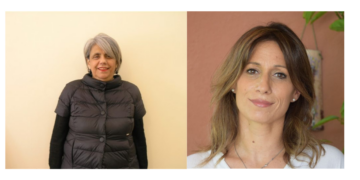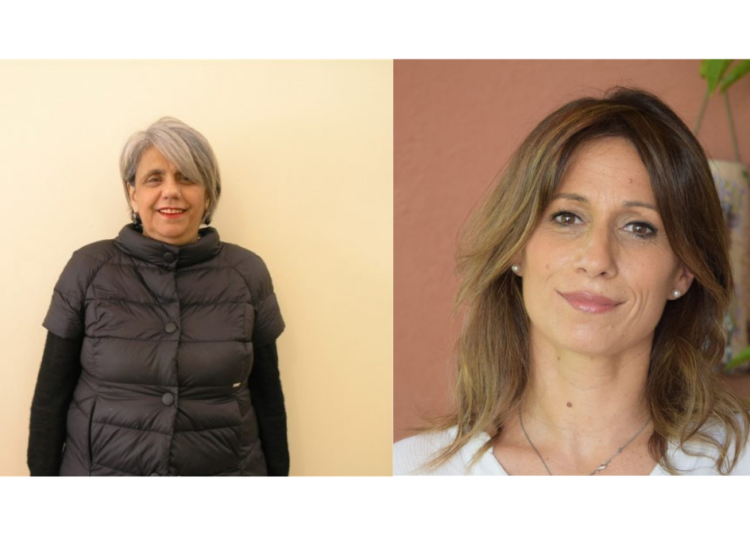The Family Day–Defending Our Children association dedicated its article on International Women’s Day to two important Italian women, Carla Minacci and Chiara Iannarelli.
“For this March 8, we wanted to highlight the experience of two women who have promoted life, family and educational freedom in all spheres of society and who now embody these values in the political arena of the Grosseto city council and the Lazio regional council. They are Carla Minacci and Chiara Iannarelli, respectively. The first is a doctor, secretary of the Tuscan section of the Association of Catholic Doctors and president of the Equal Opportunities Commission of the Municipality of Grosseto. The second is a teacher, newly elected to the regional council of Lazio in the lists of Fratelli d’Italia with more than 11 thousand preferences, and former president of the Article 26 Association, which promotes educational freedom in schools.
Minacci tells us that since her college days (she was one of the few female students) she has claimed her femininity in front of those who, when wanting to compliment her performance, described her as a male with attributes. “I have a uterus!!!” she retorted to students and professors. She joined the Christian Democracy as a young woman in a “red” land like Tuscany. “I have never joined the feminist battles against the so-called patriarchy that in my opinion were self-limiting of leftist women,” Minacci explains, “we need to get equal opportunities at the starting blocks, but we should not forget the differences. I proudly claim women’s ability to generate and defend it; equality is not flattening and that is why I am against abortion culture, against the uterus for rent and against presenting men with a feminine self-perception as women.” Minacci believes in the complementarity between men and women, but she also says that the most important aspect of a woman’s professional success is the support of her husband: “I practiced medicine as a freelancer, and without my husband’s help I would never have been able to reconcile this commitment with my family; my father was also instrumental in this, never failing to support me when I was a student.” Today Minacci brings this vision to politics: “The municipality of Grosseto wants to support mothers, especially those with disabled children, who are often abandoned by their husbands who move away because they cannot take on such a heavy commitment.” No less important are efforts to increase the number of available places in kindergartens and plans for shelters for women who have experienced domestic violence, “my dream is also to open a center for the treatment of violent men.”
Chiara Iannarelli, a teacher and a mother of five, is at the beginning of her political experience after a very long journey in Catholic and pro-family associations. The Article 26 Association present at the table of the Ministry of Education promotes the educational responsibility of parents and has repeatedly reported and blocked projects that aimed to introduce gender ideology in schools. Now she is preparing to take office as a regional councilor “to sow the values of the Church’s social doctrine” with a view that is not limited to the rights of a minority “but to the common good of the whole of civil society and for all the great social issues,” from family to labor. She tells us that this challenge will be undertaken by her entire family; her husband and children have been “hired” to help her manage facing this task that will see her working tirelessly for the citizens of Latium; “without the full support of my family I would never have been able to run for office.” “My candidacy,” Iannarelli continues, “has given my children a sense of the importance of being committed to something bigger, to the common good, so they have helped me follow my dad, their grandpa, who is suffering from Alzheimer’s disease, by taking shifts at his side. Of course, a special thanks also goes to my husband. The family thus becomes a resource for politics and is reaffirmed as the first core of solidarity, a form of mutual aid that draws positive examples from the strength of women.”
Chiara was also able to involve many young people in her campaign who did not even have voter cards and she passed on to them an interest in public affairs and the common good. “I think that the interpersonal skills of the female universe offer an extra edge to women,” Iannarelli explains, “this female element can and should be enhanced by the whole society.”
Iannarelli says she will treasure all experiences in the world of “pre-politics” without which politics becomes an empty box made only of propaganda. Article 26 and all the experiences in pro-family activism represent a reservoir of skills that are unmatched on a path to successfully make a good synthesis of the needs of all people. “There is a chain that starts with associations pressing institutions,” Iannarelli goes on to explain, “but then there has to be someone in the halls of politics who turns these proposals into laws and is able to stop the contrary thrusts of ideological colonization.” For her, the work of politics must be “in line” with that of pre-politics, and the latter must never stop making cultural contributions.
In conclusion, Iannarelli points to that specific contribution that only women can make in the pursuit of the common good, namely the ability to “manage complexity, to welcome and make synthesis of even the most hidden nuances of a given issue.” No less important are “interpersonal skills” and “the attitude of continually overcoming oneself, of throwing one’s heart over the hurdle without asking for any personal gain.”
The grammatical and politically correct contortions of cover feminism often cast their shadow over the daily reality of Italian women. We wanted to offer a simple glimpse into our wonderful world of pro-family and pro-life activist circles. Two mothers, two professionals who did not ask for permission or make use of pink quotas to assert their abilities and bring their contributions to the whole society.”




















Discussion about this post